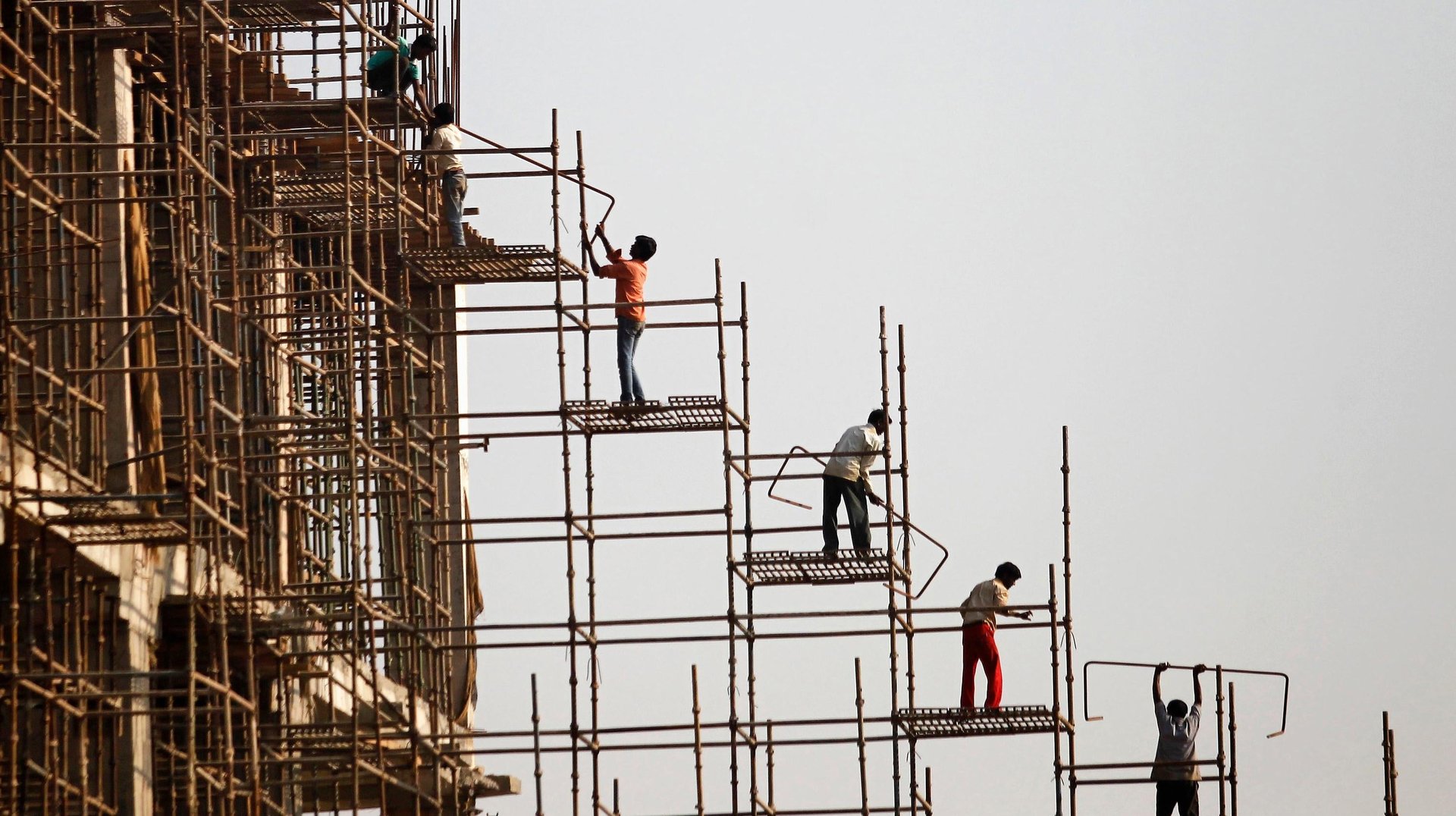India's economy has more than one reason to fear
India is suffering high unemployment and real wages at a record low level

India’s long-standing status as the world’s fastest-growing economy may be in peril.
Weak domestic consumption, along with a potentially aggressive withdrawal of easy money by the US and Europe, could be the trigger for this shift.
Last weekend, the US Federal Reserve chair Jerome Powell warned of “some pain to households and businesses” in its efforts to curb inflation. An “unusually large” rate hike was due in September, he said. “We must keep at it until the job is done.”
The probability of a 300-325 basis point (bps) hike rose to 71.5% today (Aug. 29), from 55% a week ago, according to the CME FedWatch tool.
All this seems to have spooked US stocks, and then the emerging markets. India’s benchmark stock indices, Nifty50 and Sensex, were trading nearly 1.5% down each today, with the Sensex losing over 1,000 points in early trade.
The largest MSCI index of Asia-Pacific stocks, of which India is a part, fell by 2.3% following Powell’s speech. The index posted its largest decline since June 13.
Indian markets will remain volatile
Market experts believe aggressive hikes in the developed economies would eat into the returns of Indian equities, while also pausing foreign interest in its stocks.
“The sharp rise in the dollar index above 109 and the 10-year bond yield spiking to 3.1% are negative for capital flows to EMs [emerging markets] like India. FPIs [foreign portfolio investors] are unlikely to continue buying in India in this scenario,” said VK Vijaykumar, chief investment strategist at Geojit Financial Services.
The rupee today slipped to a record low of 80.11 a dollar and is expected to fall further to 81-82 per dollar in the coming days.
India’s woes, however, do not end here.
India needs to shift the focus to consumption
In the past few years, its economic recovery has been driven by investments, especially since the covid-19 pandemic.
A consumption-led growth model was crucial as it revitalised social security schemes. Most economists have, meanwhile, kept their GDP estimates for the quarter ended June, lower than the 16.2% projected by the Reserve Bank of India.
While the economy is expected to grow due to a low-base effect and a pickup in the service sector, the pace may halve by July-September, an economists’ poll by Reuters has said. Growth may sputter even more towards the end of the year as interest rates rise, it showed.
“By supporting growth through investment, the government has only fired on one engine while forgetting about the impetus which domestic consumption provides. This is why India’s growth is still below its pre-pandemic trend,” Kunal Kundu, India economist at Societe Generale told NDTV.
India’s been battling high unemployment and record-low real wages, which also cloud its prospects.
